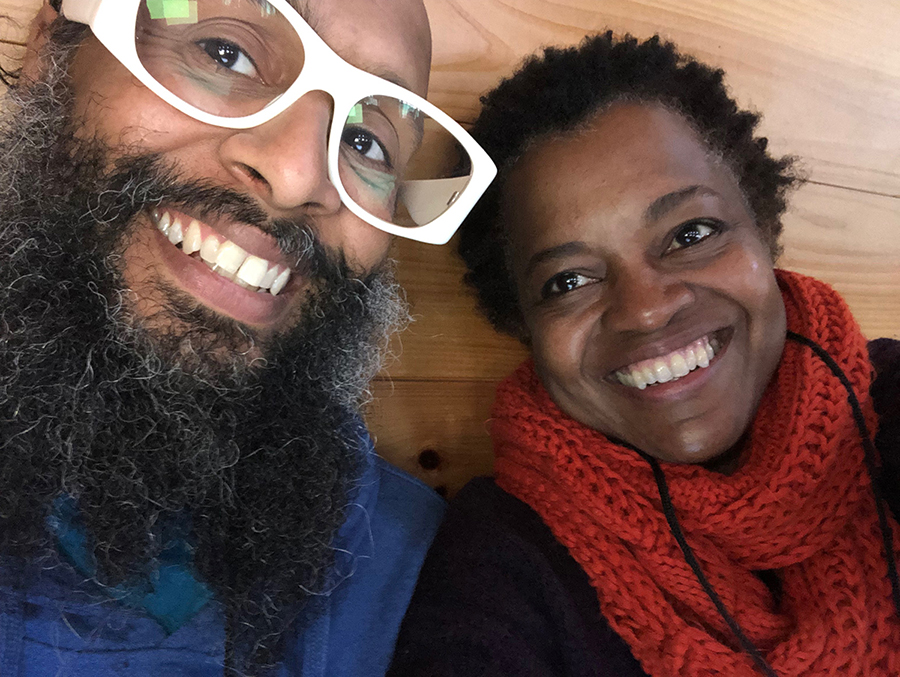Over the next few days, we will be sharing a three part series about transition at the Good Work Institute. There are a lot of changes on the horizon, internal and external, and we are excited to share our vision for the future of the Good Work Institute. Keep checking back, and as always don’t hesitate to reach out with your thoughts, questions, or suggestions. – The GWI Team
Around the globe, but most profoundly here in the USA, we have, through manipulation, fear, and force, ceded our democracy, our culture, and our biosphere to an economic system that values endless financial growth above all else.
This system was born from a mindset of greed, domination, and social and ecological indifference, and architected to suppress, obfuscate, and disconnect us from ourselves, our neighbors, and the Earth. The consequences, of course, have been dire—with inequality, injustice, ecological destruction, authoritarianism, and a decline in well being accelerating at alarming rates.
As we stand at the precipice of social and ecological collapse, we at the Good Work Institute are no longer willing to tinker at the edges or compromise for a less bad version of something we know is fully and fundamentally broken and entirely unsustainable.
The time for radical transition is upon us whether we want it to be or not. For, as the Oakland-based activist organization, Movement Generation, aptly states: “An economy based on extracting from a finite system faster than the capacity of the system to regenerate will eventually come to an end—either through collapse or through our intentional re-organization.”
However, as they also aptly state: “Transition is inevitable. Justice is not.”
Enter, Just Transition.
Finding its roots in the labor and environmental justice movements, Just Transition has been adapted and expanded by Movement Generation into a framework that offers “a set of aligned strategies to transition whole communities toward thriving economies that provide dignified, productive, and ecologically sustainable livelihoods that are governed directly by workers and communities.”
Henceforth, the Good Work Institute is dedicating itself to that intentional re-organization, or Just Transition, here in the Hudson Valley. While the focus of our work has always been to build a network of local community members who are committed to building a regenerative future, we are now excited to adopt a clear framework to help focus our efforts in the most high impact places.
The Good Work Institute’s mission is to foster just transition in the Hudson Valley. We aim to do this by cultivating, connecting, supporting, and illuminating a network of local community members who are shifting the system from extraction to regeneration.
Moving forward, all of our work will be focused in the following five areas (language adapted from Movement Generation with further expansion and reflection offered by GWI.)
Advancing Ecological Restoration
The crises of climate change, biodiversity loss, and environmental contamination pose a threat to our existence and the foundations of our ecology, society, and economy. The root of the word “eco” comes from the Greek word “oikos” meaning “home.” We are committed to supporting people and projects that are caring for our home, preserving and restoring our fragile ecosystems, increasing biodiversity, eliminating environmental toxins, mitigating the causes of global warming, and fostering community resilience.
Democratizing communities, wealth and the workplace:
We all suffer the destructive effects of an extractive economy, an extractive society, and an extractive system of power. Our time, our capacity to make decisions in our communities, and the fruits of our labor are all being taken out of our places. There is a deeply inequitable concentration of wealth, power, and other forms of capital that erodes our connection to ourselves, our places, and the natural world. Through democratizing communities, wealth, and the workplace, we see an opportunity to bring that value back and share it more equitably within our communities.
Driving racial justice and social equity
Racial justice and social equity are more than just ideals. No society can claim to be healthy while it marginalizes any of its own members. Racial justice and social equity are critical to the health and sustainability of thriving communities because they allow space for all members in a community to participate fully. We work to dismantle systems of oppression, redress inequality, establish respectful relationships of mutual benefit, promote fairness, and practice equality.
Relocalizing most production and consumption
Globalized production and consumption lead to pace, scale, and power imbalances that make it virtually impossible for shareholders and executives to prioritize regard for ecological or social limits. Relocalizing most production and consumption is about building local self-reliance, resilience, and trust so that our land, life, and labor are part of a balanced web of stable, interdependent relationships focused on taking care of our places and each other. Drawing more money and power down to the local level, while practicing the other Just Transition, can lead us away from an extractive economy and toward a regenerative one.
Retaining and restoring cultures and traditions
As biodiversity is essential to the long-term survival of life on earth, cultural diversity is vital for the long-term survival and cultivation of the best of our humanity. Our country’s history of occupation and colonization, and the impacts of blind capitalism, have caused so much destruction and disruption to the cultures and traditions of many peoples. It has also forced many communities to sacrifice culture and tradition for economic survival. We seek to do and support work that honors, respects, and contributes to the restoration of the life-supporting traditions of the array of cultures connected to our region.
Looking ahead we will be announcing new programming that will be cultivating awareness and understanding of Just Transition, and launching new support initiatives for the people fostering it here in the Hudson Valley. We will also be opening our Just Transition Library at the Greenhouse, our new space in Kingston. Already we have over 400 titles in our lending collection exploring the above topics.
Come back for GWI’s Just Transition: Part 2 – Becoming a Worker Self-Directed Nonprofit.


